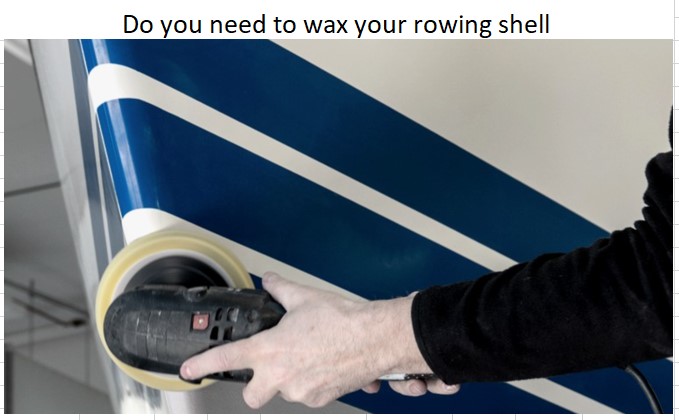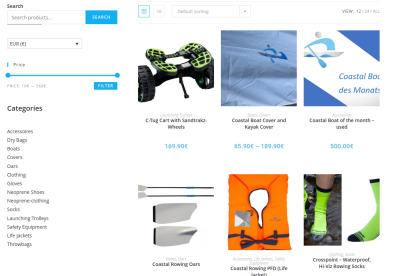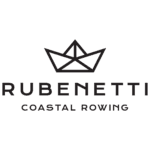The question on whether I should wax my rowing boat is very indifferent. Waxing your rowing boat is a good idea and can offer several benefits, especially if your boat is made of fiberglass or other materials that can benefit from a protective layer. Still, we are not sure if it is needed and wonder how helpful a skin of wax will be to the rowing boat. Here are some reasons why you might want to consider waxing your rowing boat:
- UV protection: Waxing creates a protective barrier on the boat’s surface, shielding it from the harmful effects of ultraviolet (UV) rays. UV rays from the sun can cause fading, oxidation, and deterioration of the boat’s finish over time.
- Prevention of dirt adhesion and oxidation: Waxing helps prevent oxidation, which is a chemical reaction that can occur on the surface of materials like fiberglass. Oxidation can lead to a chalky appearance and compromise the overall look of the boat.
- Enhanced Shine : Waxing brings out the shine in the boat’s finish, making it look well-maintained and aesthetically pleasing. This is particularly important if you take pride in the appearance of your boat.
- Easier cleaning: A waxed surface is smoother and less prone to dirt and grime buildup. This makes it easier to clean the boat, and contaminants are less likely to adhere to the waxed surface.
- Improved water repellency: Some boat waxes offer water repellency, helping water bead off the surface. This can be beneficial in preventing water spots and making it easier to dry the boat after use.
- Extended lifespan: By providing an additional layer of protection, waxing can contribute to the longevity of the boat’s materials. It helps guard against environmental elements, reducing the risk of degradation over time.
- Resale value: If you ever decide to sell or upgrade your rowing boat, a well-maintained and waxed boat may have a higher resale value. Potential buyers often appreciate a boat that has been cared for and protected.
There are a few types of boat waxes you will find :
- Carnauba-Based Wax: this is a high-quality option that gives your boat two layers of extreme and long-lasting protection. This wax, when used regularly, will maintain a clean and polished look for your boat and will protect it from UV rays, dirt, acid rain, and even bugs.
- Metal Wax: metal wax is ideal for metal boats. This wax works for copper, aluminum, brass, chrome, and even stainless steel. In addition to the hull, this can also protect your marine accessories. This wax comes in a paste or liquid.
- Fiberglass Wax: As the name suggests, this wax is designed for fiberglass boats. This wax may not need rubbing or buffing when applied.
When buying wax for your boat, make sure you look for the type that works for you and your boat. Each wax is made differently, and you will want to make sure you get what you need. If you are still not sure, ask you boat producer for help.
When you have finished, you will want to allow the wax to dry. If you do not allow it to dry properly, it will not set correctly to protect the Gelcoat. The time that it takes to dry will usually vary between 5 to 10 minutes. Make sure you read the directions properly and wait for the wax to take on a hazy appearance before buffing it out and completing your job.
Wax your rowing boat and using the right product
When waxing your rowing boat, it’s essential to use a wax specifically designed for marine applications. Follow the manufacturer’s instructions for application and removal, and choose a wax appropriate for the material of your boat (fiberglass, aluminum, wood, etc.). Remember that the frequency of waxing will depend on factors such as how often the boat is used, the environmental conditions it faces, and the specific wax used. Regular maintenance, including cleaning and waxing, can go a long way in keeping your rowing boat in good condition.
Should i wax my rowing boat? Practice before use:
While waxing a rowing boat is generally a beneficial practice, there are some considerations and potential risks to be aware of:
- Waxing your hull does not increase speed
Read about this article and the effect of over waxibng your hull.
- Check Product Compatibility:
- Using a wax that is not suitable for your boat’s material may lead to issues. Ensure that the wax is compatible with the type of material your rowing boat is made from (e.g., fiberglass, wood, aluminum). Some waxes may contain abrasive compounds that can damage certain surfaces.
- Direct sunlight and boat surface temperature:
- Avoid waxing your boat’s surface when it is too hot, as this can cause the wax to dry too quickly and become challenging to buff off. Work in shaded areas and follow the product instructions regarding temperature conditions.
- Overapplication:
- Applying too much wax or failing to remove excess wax after application can lead to a cloudy or hazy appearance on the boat’s surface. Over time, this residue may attract dirt and reduce the effectiveness of the wax.
- Slippery Surfaces:
- Applying wax to areas where you step or stand on the boat may make these surfaces slippery. Exercise caution, especially on decks and seating areas, to avoid slipping and potential accidents.
- Time-Consuming Process:
- Waxing a boat can be a time-consuming process, and improper application or insufficient buffing may lead to less-than-desirable results. Take the time to follow the product instructions carefully for the best outcome.
- Environmental Impact:
- Some boat waxes may contain chemicals that could have environmental impacts, especially if they run off into the water. Choose environmentally friendly or biodegradable products when possible and take care to apply them away from open water.
Our advice: we recommend to polish a boat once a year in case it got exposed to UV-light, salt or dirty water. As to our experiance, polishing a boat is sufficient. We fear, that cleaning the hull from wax in order to polish the boat after the next season will be very time consuming. Plus, some polishers have oil as ingrdients. So we think: Waxing your boat is not very important.
In case you want to try it:
To minimize these risks, it’s crucial to carefully read and follow the instructions provided by the wax manufacturer. Test a small, inconspicuous area first to ensure compatibility and desired results. If you have any concerns or specific conditions unique to your boat, consider seeking advice from professionals or boat maintenance experts.







